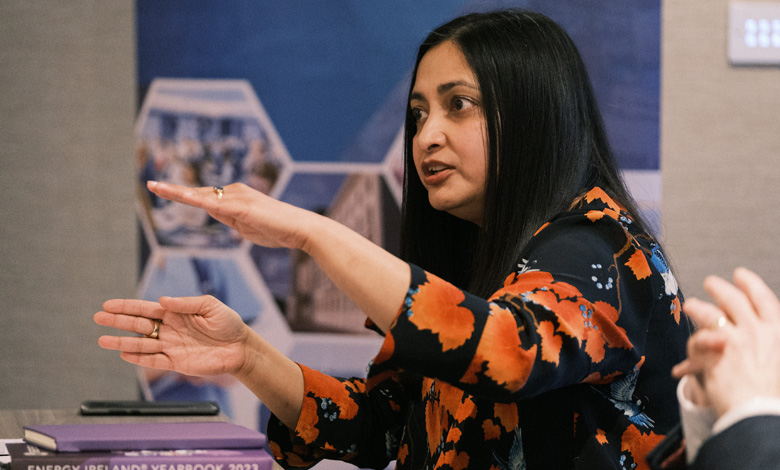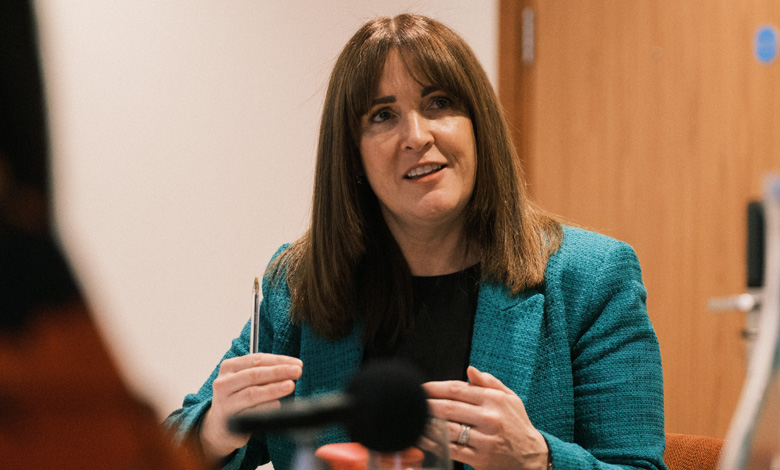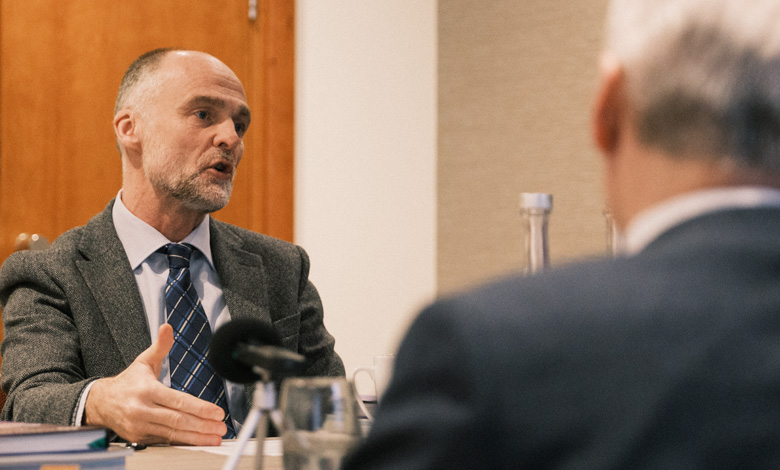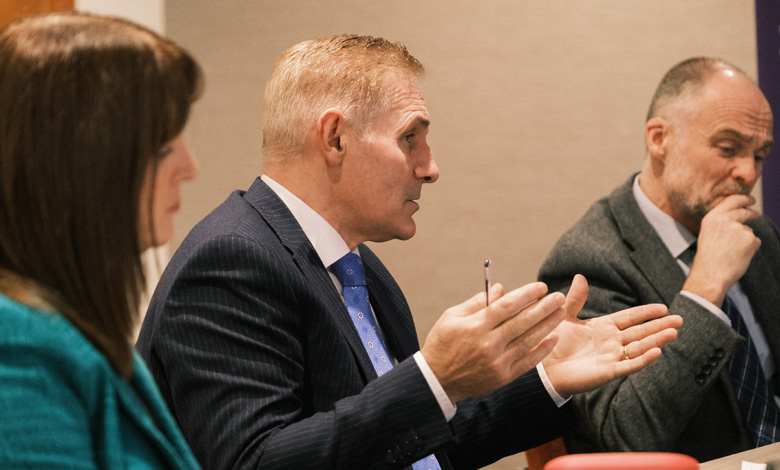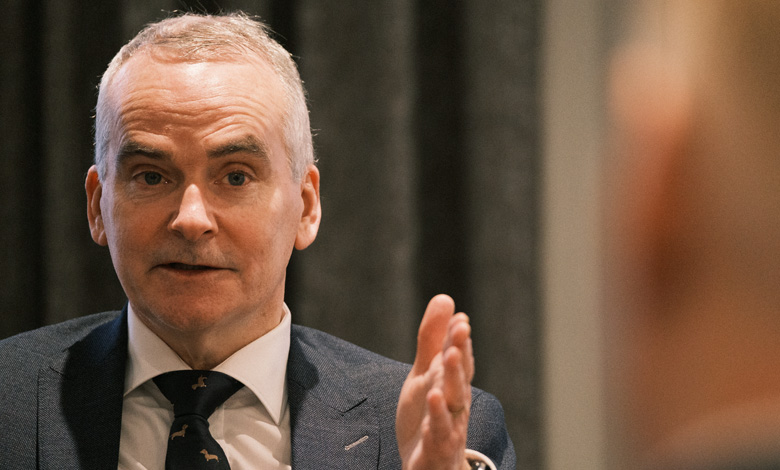Energy transition: Implementation that meets consumer need
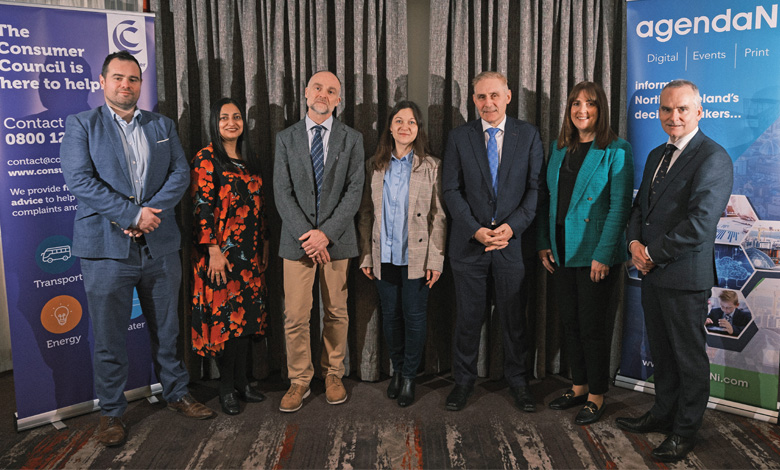
The Consumer Council gathered stakeholders from energy, water, transport, and academia to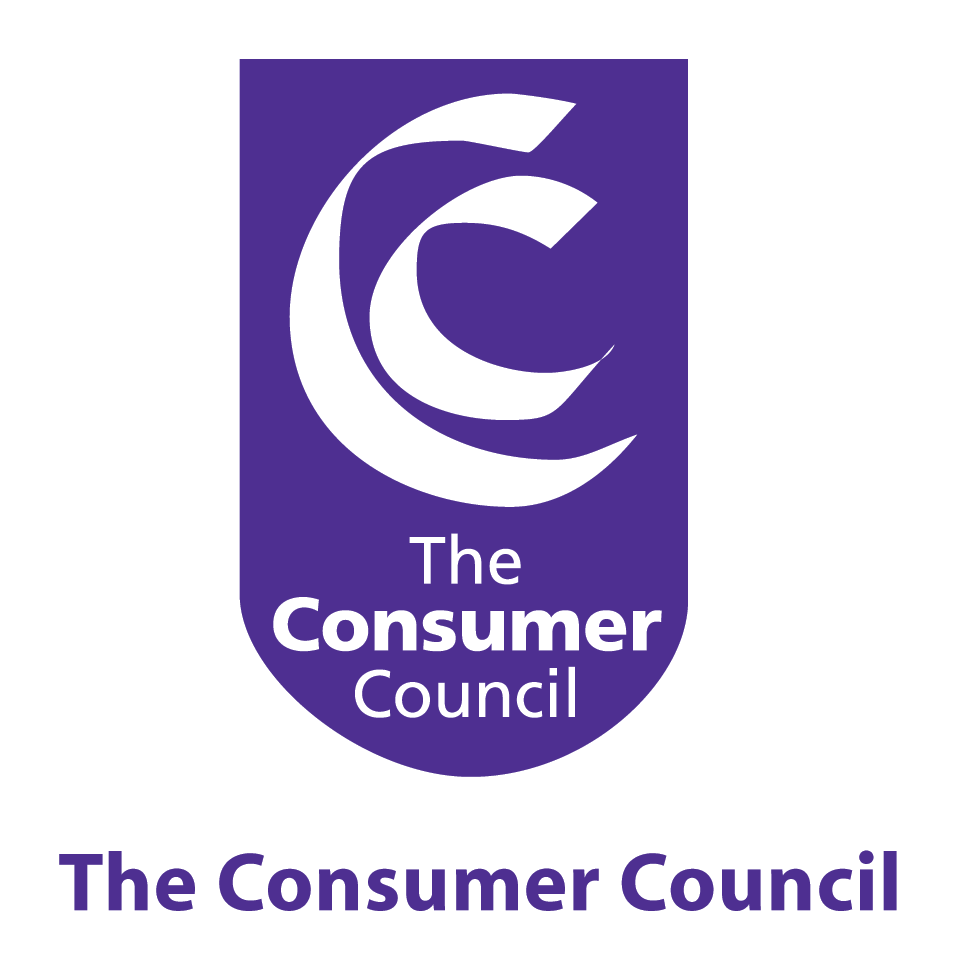 discuss the role of the consumer in the energy transition.
discuss the role of the consumer in the energy transition.
What is the role of the consumer in the energy transition?
Kevin Shiels
Energy is a fundamental part of the essential services all consumers require daily, ranging from different forms of energy (oil, gas, electricity), to transport, and water. The reality is that these services are changing as we move towards decarbonised energy systems and wider economy; and consumers are central to that change. Firstly, because it is consumers who will inevitably pay for this change, and secondly, because these services need to ensure that all consumers, not just those who are engaged in the transition, are informed, catered for, and protected where needed. The energy transition should not happen to consumers, it should be driven by consumers and a big part of this is about how they can be incentivised to change behaviours.
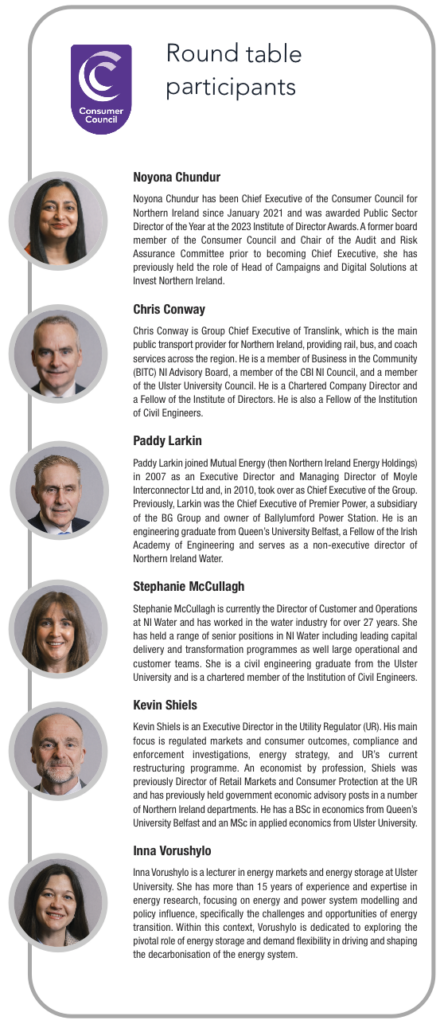
Paddy Larkin
The consumer has many roles in the transition but potentially the most critical role is support. If consumers do not support the transition, it will not happen. That support comes in two levels. Firstly, consumers as a whole, who will need to pay for the transition. There is risk in such long-term commitments and so if consumers are going to support it, they need to see that it is being done at the lowest cost, with the best intentions, and that the potential of any unintended consequences are minimised. They need to be informed, and importantly, well represented. At an individual level, changing behaviours is key to the transition. To enable this, consumers must have choice and be incentivised to change.
Stephanie McCullagh
The cleanest form of energy is that which is not used, and consumption reduction is a critical part of the transition. Consumers have a personal responsibility for energy conservation, which, when calculated as a collective, can be a massive driver of change. Our role as a utility in the transition might not be immediately evident, but NI Water is the single largest electricity user in Northern Ireland and as such we need to help customers understand that as more water is consumed, more energy is required for treatment and distribution and therefore taking small steps such as conserving water can play a part in the energy transition. Greater understanding of the energy cost of consumption is required and we need the consumer to support greater efficiency, act on it, and lobby for change.
Inna Vorushylo
It is important to highlight that consumer engagement does not always represent active consumers. We need active consumers, but to be active, consumers need to be informed and they need to trust their providers. Unfortunately, that trust between the consumer and energy organisations is quite low. The consumer needs evidence that they can trust the actions being taken to transition and they need to see opportunities in it.
Chris Conway
Active consumers can drive change but there needs to be much more education to ensure the link between energy efficiency and climate change reduction are being made. Energy efficiency, and the steps that consumers can take right now for better conservation, are not part of the mainstream conversation. Instead, the media tend to focus on the decarbonising potential of future technologies like EVs or heat pumps, and less on the most efficient of all, which is consumption reduction. I also believe consumers have a big role to play in vocalising to politicians and policymakers how they want the transition to happen and to support politicians to make some of the big decisions needed.
Noyona Chundur
Consumers are the most important component of the energy transition and their insights need to drive how we navigate this change. To do so, we need to fully understand where consumers are today. The reality is most consumers have low understanding, awareness, and appetite for the transition. The past two and a half years of market volatility, security of supply concerns, and price rises has seen interest rise because consumers want to lower their bills, but not their understanding of what is expected from them or environmental considerations. Consumers need to first understand what is being asked, and presented with simple, accessible, and convenient actions, so they can embrace the energy transition and influence government and policy making.
“By its very nature, energy transition has to be delivered at pace. What consumers want when moving at speed is to trust the energy system and the suppliers operating within it.”
Noyona Chundur
What are the priority pillars of delivering a consumer-centric transition?
Noyona Chundur
In a joint project between the Consumer Council and the Utility Regulator, looking at future consumer protection during decarbonisation, we identified six priority pillars. The first, and consumers see this as a non-negotiable, is protection. Consumers need robust protections to be confident in the energy market. Secondly, the cost of energy transition must be affordable for all consumers, and from a whole systems perspective. Thirdly, consumers want simplicity with trusted information and clear pathways to the access services and solutions they need, tailored to their circumstances. Fourthly is to build consumer trust.
Fifthly, consumers want inclusive policies and standards that set out how industry and suppliers interact with them. Inclusivity also means addressing the digital divide so no one is left behind when we consider digital delivery. Finally, consumers want leadership. Our lowest earning households have less than £27 per week after paying for essentials, so they want to see visible and consistent leadership to explain why they should invest in the energy transition.
Kevin Shiels
I think the biggest priority for a consumer-centric transition in Northern Ireland is a concerted and focused move beyond the rhetoric to one of action. The Department for the Economy’s Energy Strategy identified the need for a consumer-centric energy transition and the Climate Change Act outlined the need for a just transition, but what do these mean when it comes to delivery? For example, it is important that Northern Ireland moves ahead with the just transition strategy and principles set out in the Climate Change Act. Similarly, the need for independent, quality advice for consumers is agreed by all and the Department’s strategy usefully identified a one-stop-shop approach for consumers, but the wheels need to be firmly set in motion to enable consumers to make informed decisions and have trust in that information. Two other brief examples – Northern Ireland is behind other neighbouring jurisdictions on delivering frameworks for promoting more active consumers and behavioural change to enable decarbonisation; and we lack the energy affordability solutions being delivered elsewhere, for example, affordability tariffs for vulnerable customers. So, the priority for a consumer-centric transition in Northern Ireland is to move beyond the rhetoric and start delivering on the building blocks and enablers that we all recognise are needed.
“We need to ensure there are no unintended penalties for those who cannot afford to upgrade to new renewable technologies.”
Stephanie McCullagh
Noyona Chundur
Interestingly, consumers are more engaged in and supportive of solutions when they are localised. Our research into the decarbonisation of transport found support for macro measures such as increasing tax on petrol and diesel cars (16 per cent), increasing car parking charges (23 per cent), or introducing congestion charges (30 per cent) was low. When we flipped the questions to focus making their town or city cleaner and safer, 65 per cent would support traffic calming measures, 60 per cent would support an ultra low-emission zone for Belfast and 51 per cent would support low traffic neighbourhoods. There are quick wins available if we can identify local value and benefit.
Chris Conway
A strong consumer voice can help garner political momentum and drive policy changes. To achieve that strong voice, there needs to be greater clarity on what a just transition is and the pathway that is being taken. There is a genuine fear among many low-income households that the energy transition means larger costs and greater fuel poverty. We must articulate and demonstrate fully that a just transition means that everyone will be taken along on the journey and no one will be left behind. If that can be done, then I think the support of a much larger cohort of people can be acquired. Another avenue of support is the removal of existing road blocks to let engaged consumers self-generate and feed back in to the grid, allowing them to be an active player in the transition.
“The energy transition should not happen to consumers, it should be driven by consumers and a big part of this is about how they can be incentivised to change behaviours.”
Kevin Shiels
Paddy Larkin
A consumer-centric transition is one that understands that no one is willing to regress on the current standards of provision or standards of living. A transition that threatens security of supply or reliability to the power or water running to homes, for example, will not be accepted nor supported. It goes beyond the energy sector. We cannot have an outright ban currently on fossil fuel plants but expect the lights to always come on. At the same time, we cannot expect 100 per cent renewable electricity supply but reject the building of new renewable infrastructure. Therefore, education and awareness around the trade offs that will be required is a priority pillar. That feeds into the issue of affordability. As it stands, green energy is a more expensive endeavour and therefore, energy efficiency is a critical element of driving affordability. However, efficiency needs to be appropriately incentivised and that includes the recognition that tariffs must be tiered to match different social need.
Stephanie McCullagh
Education of the consumer is a priority. For example, water is a mostly hidden service because much of the infrastructure is unseen. However, that does not mean that consumers do not pay for the service they receive and the energy consumed.
At NI Water we have worked hard to ensure we are sharing with consumers the responsible steps NI Water is taking to drive down our usage and therefore consumer costs. In doing so, we also aim to show we are taking our decarbonisation journey seriously. We see an opportunity to join-up our thinking with other key stakeholders and help drive policy decision-making.
Inna Vorushylo
From an engineering perspective, decarbonisation of the energy sector is wholly possible but if we are to achieve it, then we rely on empowered consumers. An empowered consumer can take many forms ranging from those who want to benefit from providing reliability and load balancing to the grid, to those who simply want to delegate decision making to a trusted provider via a one-click solution. However, what all consumers will want, and must have, is sight of the overall and personal benefits.
“A consumer-centric transition is one that understands that no one is willing to regress on the current standards of provision or standards of living.” Paddy Larkin
What are the challenges posed to consumer protection of a fast transition?
Inna Vorushylo
Affordability. Some consumers can afford to buy electric vehicles or install renewable technologies, but consumers as a whole currently pay for the networks to support them. However, there are limitations and challenges in the equitable access to infrastructure and we can see a global trend whereby vulnerable consumers are being left behind. Another challenge is how we ensure that as some industries phase out, we create new jobs and reskill employees for the future employment market.
Stephanie McCullagh
We need to ensure there are no unintended penalties for those who cannot afford to upgrade to new renewable technologies. One way of doing that is through a just transition and ensuring that everyone is brought along on the journey and no one is left behind.
Chris Conway
The most obvious one is that technology follows Moore’s law: people coming in early may pay the higher prices and the prices will come down as the technology advances. People are therefore afraid of moving too fast but we need leaders to take those first steps otherwise the transition will never happen.
Noyona Chundur
This links back to honest conversations that are not happening, whether it is around heat pumps or EVs. Part of the narrative around heat pumps is them being a good thing, but that narrative does not include the disruption, the timeframes, the steps necessary for their installation, or the other technologies out there. We need to ensure that the consumer has all of the information so that they can make informed decisions, and we build and retain their trust in the transition.
“Digitalisation can help the energy sector to interact more efficiently with other sectors, such as transport, health or education and bring cross-sectoral benefits of more integral system design and planning.”
Inna Vorushylo
Paddy Larkin
Germany and Britain are early leaders in renewable energy but they both have very high electricity prices. However, those countries now seeking to follow them are coming up against different challenges in the form of accessing infrastructure. There is a timing challenge. Get in too early and you pay too much, get in too late and you join a long queue because this transition is global. The other challenge is affordability. We currently have a situation where the person who is not producing renewable energy is providing security of supply for the person that is. The tariffs and the prices people pay are not reflective of the infrastructure they use and that becomes more apparent if you go very fast in the transition.
Kevin Shiels
The pace of change can be frightening and it is being driven by the energy companies themselves, quite rightly wanting to decarbonise, and by the challenging Northern Ireland legislative 2030 decarbonisation targets. That pace of change is not going away. However, we can establish minimum standards regardless of what energy the consumer uses, consumers should be guaranteed standards around price transparency, complaints handling, and the full consumer journey from delivering new technology through to the outcomes in their homes and businesses. If we can get that in place and set a base level of protection for consumers, we can indeed provide a more consumer centric transition. The second thing we can do is learn from elsewhere. The reality is that Northern Ireland is behind other jurisdictions in looking at these questions. We do not have to reinvent the wheel and we can be focused fast-followers of other jurisdictions who are further advanced, albeit we do have to make our transition Northern Ireland centric.
“We need simple policies. For example, if Belfast is a zero-emissions zone, then it is a simple decision for people to get a bus, or a train, or to walk.” Chris Conway
Noyona Chundur
By its very nature, energy transition has to be delivered at pace. What consumers want when moving at speed is to trust the energy system and the suppliers operating within it. However, before we even get there, we need to address the knowledge gap that exists. Our research found 79 per cent of consumers have little to no knowledge of the term greenhouse gas emissions, and it was 56 per cent for net zero, 62 per cent for decarbonisation and 73 per cent for energy transition, and three in 10 did not know petrol and diesel cars are being phased out by 2035. We are starting at a low baseline and we have work to do. It is not just about influencing policy; it is about engaging communities to bring consumers onboard, giving them affordable energy for their homes and bringing them on the journey to becoming more sustainable households. The pace is set; connectivity and collaboration is the way forward.
Kevin Shiels
Until Northern Ireland has a trusted source of independent advice on what these terms mean and how individual consumers should change their behaviour, we will always have this problem of the ordinary person on the street not knowing what any of this means for them, for example on the best future options for home heating.
Identify the key enablers of empowered consumers in the transition.
Kevin Shiels
A form of independent trusted advice where consumers can get specific advice that they know is right for them and helps them make important decisions around changing their behaviours to help deliver decarbonisation. However, there will always be a large group of consumers who do not respond to informational signals, so we need some base level consumer protection that operates no matter what, for all consumers, so that those who do not engage default to a good deal, regardless.
Paddy Larkin
The domestic consumer needs strong representation through the decision-making process where these long-term contracts are being signed.
Stephanie McCullagh
For me, it is affordability and accessibility. How do we make it affordable for all consumers to go to clean energy sources? What incentives and subsidies do we need and at what point do we need them? It is about making all of those available to everybody to get the timing right and make the transition available to all.
Inna Vorushylo
First is consumer-centric digitalisation of our energy system, to empower consumers and achieve a more efficient electricity market. If digitalisation and open data access happens, it could bring innovation, develop smart infrastructure, lower consumer bills and help eradicate fuel poverty, as regulators should have the instruments and data to see who is being left behind. Digitalisation can help the energy sector to interact more efficiently with other sectors, such as transport, health or education and bring cross-sectoral benefits of more integral system design and planning.
Chris Conway
It is about simplicity. To make it easy, consumers need easy decisions to make. From a transport perspective, that is about better policy from government. We need simple policies. For example, if Belfast is a zero-emissions zone, then it is a simple decision for people to get a bus, or a train, or to walk. When London introduced the first low-emissions zones in 2008, public transport usage increased significantly because of that one policy decision. People had a simple decision to make and it resulted in a significant shift away from people using private cars to sustainable transport.
Noyona Chundur
One thing that brings together everything everyone has said is giving consumers the opportunity to be involved in the transition through co-design and co-production. This would take it one step further from representing their interests to bringing them into the process, and helping them move them from passive to active energy consumers while appreciating the scale of the challenge ahead and their role within it. This would also allow them to feed into policy decisions right at the outset, so they are embedded at the heart of the transition and invested in the appropriate pathways for them.

